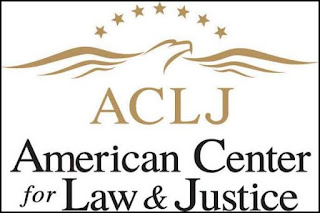“Christian nationalism” has become a widely maligned target for many in the mainstream and left-wing news media, for many former (especially “exvangelical”) Christians, and for many “nones.” But there are also Christians who (mistakenly, I believe) promote that position.
The term “Christian nationalism” is used, and misused, in a
variety of ways, and it is not easy to define it non-controversially. Here,
though, is a succinct definition by two sociologists that gets to the heart of
the matter:
Christian nationalism is a cultural framework…that idealizes and advocates a fusion of Christianity with American civic life.*1
MORE2
is a local group in the Kansas City area,*2 and its
“clergy caucus” is actively resisting White Christian nationalism—and it should
be recognized upfront that Christian nationalism is largely promoted and
abetted by White (and male) Christians.
The
picture above is of a poster given to each of us who attended the May 9 rally
sponsored by MORE2 and held in Quindaro, Kansas City (Kan.). Stephen
Jones, co-pastor of the First Baptist Church of Kansas City (Mo.), is the
leader of the clergy caucus, and his church
emphasizes the Beloved Community.
There
are many good resources for learning/sharing about the meaning of White
Christian nationalism and its threat to democracy and religious freedom in the
U.S. Here are some of those for you to consider:
◈ The Baptist Joint Committee
on Religious Liberty (BJC) has long been working on issues related to religious freedom and church-state separation. At the meeting on
resisting Christian nationalism organized by Pastor Jones in Kansas City on March
7, a staff member from BJC was the guest speaker.
In 2019, the BJC launched a new movement called “Christians
Against Christian Nationalism.” In December 2022, Time magazine ran a
rather lengthy article about Amanda Tyler, the executive director of the
BJC, and the work of that new group she started.
◈
The documentary movie Bad Faith was released on March 29, and
it is a highly informative film depicting the growth of the Christian
nationalist movement in the U.S. from the 1970s to the present. I encourage you
to read about this powerful film on
their website*2—and to see it, if possible.
In stark contrast to my high praise of Bad Faith, it is
strongly criticized by some conservative evangelicals. For example, a review
on MovieGuide.org says that it is “a bad, abhorrent
piece of progressive propaganda” produced by “Christian socialists” such as
William Barber, the “heretical black activist.”
◈
Jim Wallis’s new book The False White Gospel was published on April
4, and as I wrote in my review of that book,*4 he avers that
the old heresy of white supremacy is now operating with a new name: white
Christian nationalism.
That heresy, he says,
is “the single greatest threat to democracy in America and to the
integrity of the Christian witness” (p. 17).
◈
The Summit for Religious Freedom, conducted by Americans United for the
Separation of Church and State (AU) was held in Washington D.C. on April 14.
The May issue of Church and State (C&S), AU’s monthly periodical, is
largely about that. I encourage you to read
about it here. *5
As Rachel Laser, the Jewish woman who is the president and CEO
of AU, writes in the above issue of C&S, “The wall of separation
between church and state is not a wall that divides us; it’s a wall that unites
us—that ensures no one is favored, that allows us to thrive in our differences.”
In
summary, we who oppose White Christian nationalism need to clearly state
what we are for, not just what we are against (as Wallis emphasizes in the last
chapter of his book). Broadly speaking, we are for the freedom of religion for everyone.
We
are also for the freedom of Black people, Latinx people, Indigenous people,
LGBTQ people, immigrants seeking asylum, and others who are so often mistreated
and scorned by those who foster Christian nationalism. (I will be writing more
about freedom (= Liberty) in my blog post planned for May 30.)
Let’s
resist White Christian nationalism and welcome all into the Beloved Community!
_____
*1
Andrew L. Whitehead and
Samuel L. Perry, Taking America Back for God (2020), p. 10. Whitehead is
also the author of American Idolatry: How Christian Nationalism Betrays the
Gospel and Threatens the Church (2023).
*2
MORE2 stands
for the Metro Organization for Racial and Economic Equity. It was formed in
2004 and is financed by supporting “members,” most of whom are churches in the
area, now including Rainbow Mennonite Church (where I am a member). Ruth Harder
(my pastor) spoke at the beginning and end of the May 9 rally.
*3
One of the many
prominent progressive Christians speaking in that documentary is Randall Balmer,
an ordained Episcopal priest and a professor of religion at Dartmouth College. Balmer (b. 1954) is also the author of Bad Faith: Race and the
Rise of the Religious Right (2021). Further, last month he wrote an
important article on Christian nationalism, published here.
*4
The book review I
submitted to The Englewood Review of Books (ERB) last week is available for
your consideration here. It should be available on the
ERB website before
long.
*5
Last week I learned
that after 20 years of writing for Baptists Today, Baptist News Global,
and Good Faith Media, Thinking Friend Bruce Gourley has become the new editor
of Church and State.












.jpg)